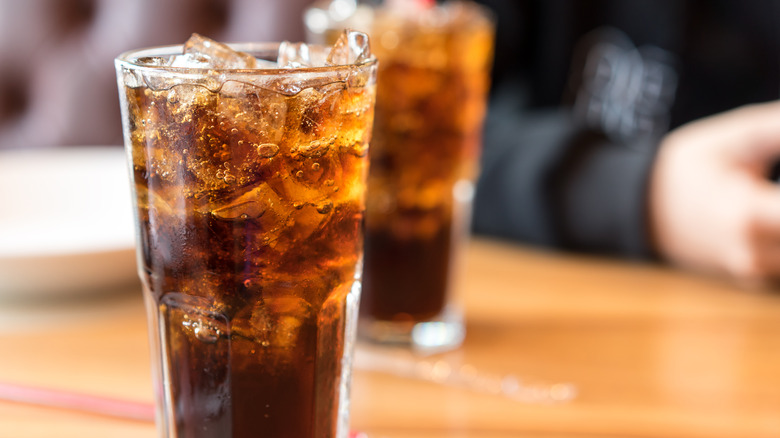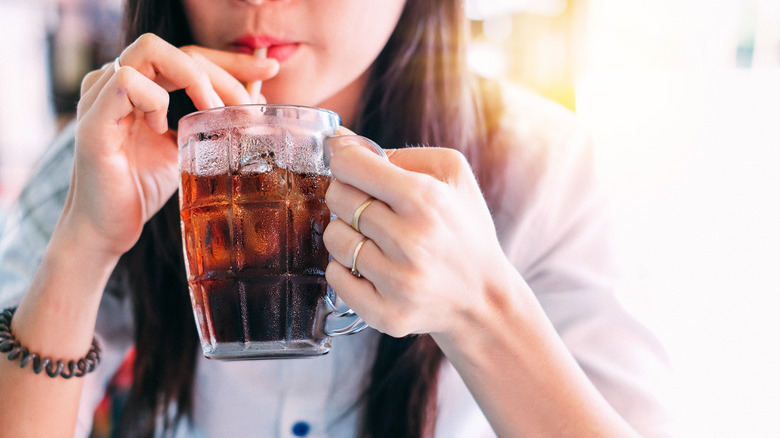What Drinking Soda Really Does To Your Teeth
Whether you call it a soda, soft drink, or pop ー your teeth don't care. Carbonated beverages wreak havoc on your pearly whites and sugar isn't the only culprit. Even if you've switched to sugar-free versions to avoiding type 2 diabetes, weight gain, or obesity, it doesn't mean you should be regularly drinking soda. While the occasional soft drink can be enjoyed within a healthy diet, for many consumers, the beverage is a steady part of their daily routine. The results of a 2017 survey published on StatInvestor indicated that 28% of Americans drank soft drinks every day.
High sugar soft drinks start affecting your body the second you take a sip. Healthline notes that cavities and noticeable effects of tooth deterioration are par for the course for frequent soda drinkers. The source explains that the combination of sugar and the bacteria in your mouth creates acid, which targets your teeth and causes erosion. The enamel and hard exterior of your teeth degrades over time, allowing easy access for sugar and acid to pinpoint the dentin layer beneath, leading to cavities.
Sugar-free versions are equally detrimental because their high acidity also contributes to decay, as Colgate explains. It might not be what you think about when you take a sip of soda, but Livestrong reports that fizzy beverages are high in citric, carbonic, and phosphoric acid. The source points out that phosphoric acid is used in industrial settings to strip steel, which doesn't bode well for your teeth.
What can you do to prevent damage to your teeth from soda?
If you can't imagine life without soft drinks, there are ways to mitigate extreme tooth decay. For starters, Colgate doesn't recommend sipping away all day since damage is more likely the longer your teeth are exposed to acid. Consequently, chugging a soda is actually better than savoring it for hours because the acids spend less time in contact with your teeth. As well, Science Daily reports that a research by the Academy of General Dentistry (AGD), demonstrated different patterns of tooth damage depending on how soda was consumed. While it may not seem important, noticeable differences can be identified between people who drink through a straw compared with those who sip directly from a can. The tendency to allow soda to pool in your mouth is among the worst habits for dental health.
The general consensus seems to be that a straw placed slightly further towards the back of your mouth will help prevent some of the acid from damaging your teeth (via Science Daily). Contrary to instinct, you shouldn't brush your teeth immediately after drinking soda because your canines are quite vulnerable at that time, according to Healthline. Colgate suggests rinsing your mouth with water or eating dairy after a soft drink to neutralize some of the acid. Paula Jones, a spokesperson for the AGD, advises using toothpaste with fluoride to help counter some of the effects of soft drinks on tooth enamel.

